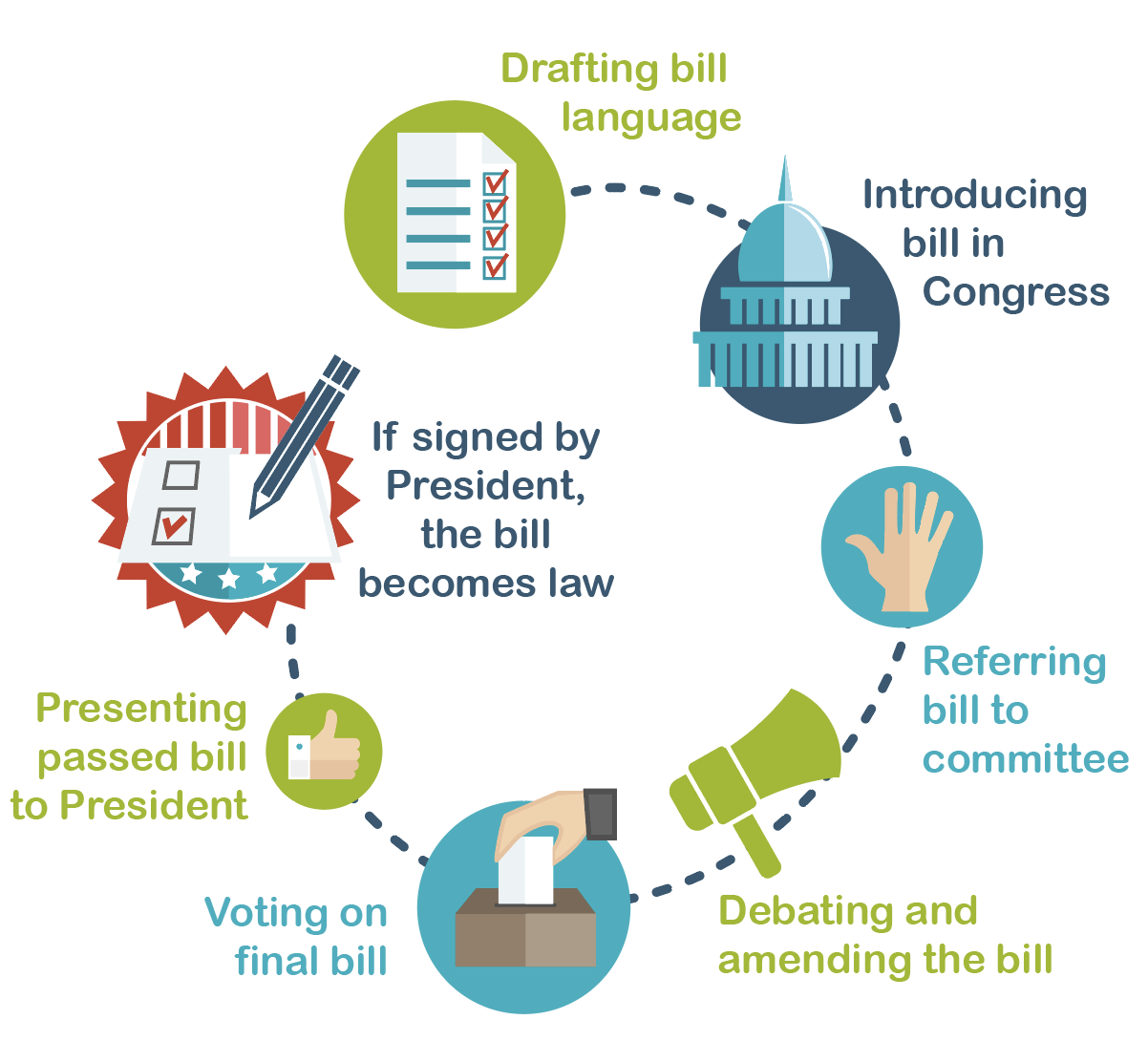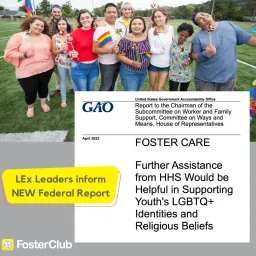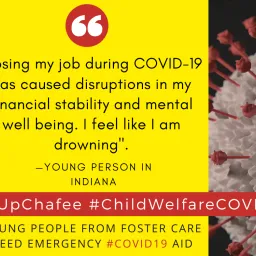Young people with lived experience in foster care must have a seat at the table to transform laws and policies that shape their own lives.
What is Public Policy?
- Public Policy is what the government and elected officials decided to do or not do about an issue.
- Public Policy involves making choices on whether and how to address problems that affect society
- Key aspects of public policy include:
- Identifying issues that need attention
- Proposing potential solutions
- Implementing and evaluating decided actions
What is Legislation?
- Legislation refers to laws enacted by a lawmaking body
- At the federal level, legislation involves U.S. Congress (the Senate and the House of Representatives) passing bills.
- FosterClub advocates for legislation that empowers youth in care

Nothing About Us Without Us
We believe that when the System listens to young people with lived experience in foster care, it does better. We refer to the young people who step up to inform public policy and legistlation as Lived Experience Leaders — or LEx Leaders, for short.
Timeline of Major Child Welfare Legislation.
Below, we've provided a quick summary of major legislation that impact the foster care system, highlighting items that might be most interesting to young people in the FosterClub network who are interested in advocating for change.
This is when FosterClub was born. (2000)
”FosterClub has made me CURIOUS. After my AllStar Internship and first Board Meeting, I developed a deep curiosity for Policy, Partnerships, and Marketing. I constantly put myself in a mindset of curiosity and environment of learning all due to the conversations and experiences with FosterClubs staff, Board of Directors, partners, and advocates.”
— Cody, past FosterClub Intern and Board Member
Recent Public Policy News

LEx Leaders tell the United States Supreme Court to #ProtectICWA in Amicus Brief
FosterClub is pleased to share an amicus brief from former foster youth filed at the Supreme Court earlier this month. The brief was supported by several Lived Experience (LEx) leaders and includes thirteen Native Leaders’ experiences and recommendations. This brief discusses how the Indian Child Welfare Act (ICWA) “supports [LEx leaders and] allows them to maintain their familial, cultural, religious...

Statement on Roe v. Wade
A Message from FosterClub Leadership In light of the Roe v. Wade decision, we reaffirm FosterClub’s dedication to preventing unnecessary placement of children into foster care. If you would like to learn more about how the Roe v. Wade decision will increase the number of children who experience the trauma of entering foster care, as well as understand the impact...

Overturning Roe v. Wade: What it Means for People Impacted by Foster Care
Background On June 24, 2022, the Supreme Court officially reversed the 1973 ruling for Roe v. Wade, overturning the federally-guaranteed right to abortion access which has existed for nearly half a century. This decision has many far-reaching impacts, including those for young people and families who are affected by foster care and other parts of the child welfare system. FosterClub's...

LEx Leaders informed Federal GAO Report on Supporting Foster Youth who are LGBTQ+ or religious
A new report released today from the Government Accountability Office (GAO) includes perspectives and insights from FosterClub Lived Experience (LEx) Leaders. Last summer, fifteen LEx leaders joined staff from the Government Accountability Office in two roundtable discusions where they discussed their experiences in foster care as young people who identified as a part of the LGBTQ+ community or experiences with...

Foster Youth Need #FamiliesNotFacilities
Family is critical for young people in and from foster care. We know, from what Lived Experience (LEx) leaders have told us, that too often, foster youth are unnecessarily placed in congregate care facilities which has long-term impacts on their well-being, family connections and transition to adulthood, especially as these placements which can stretch on for years. We must do...

Applications Open: Join the National Foster Care Youth & Alumni Policy Council
FosterClub and Foster Care Alumni of America (FCAA) are now accepting applications for the National Foster Care Youth & Alumni Policy Council. Individuals with lived experience in the child welfare system (including foster care, adoption, kinship/relative care) and are age 18 through 26 are eligible to apply. Learn more about the work of Council members below. Click to Apply Now...
